Olive Oil and AFib
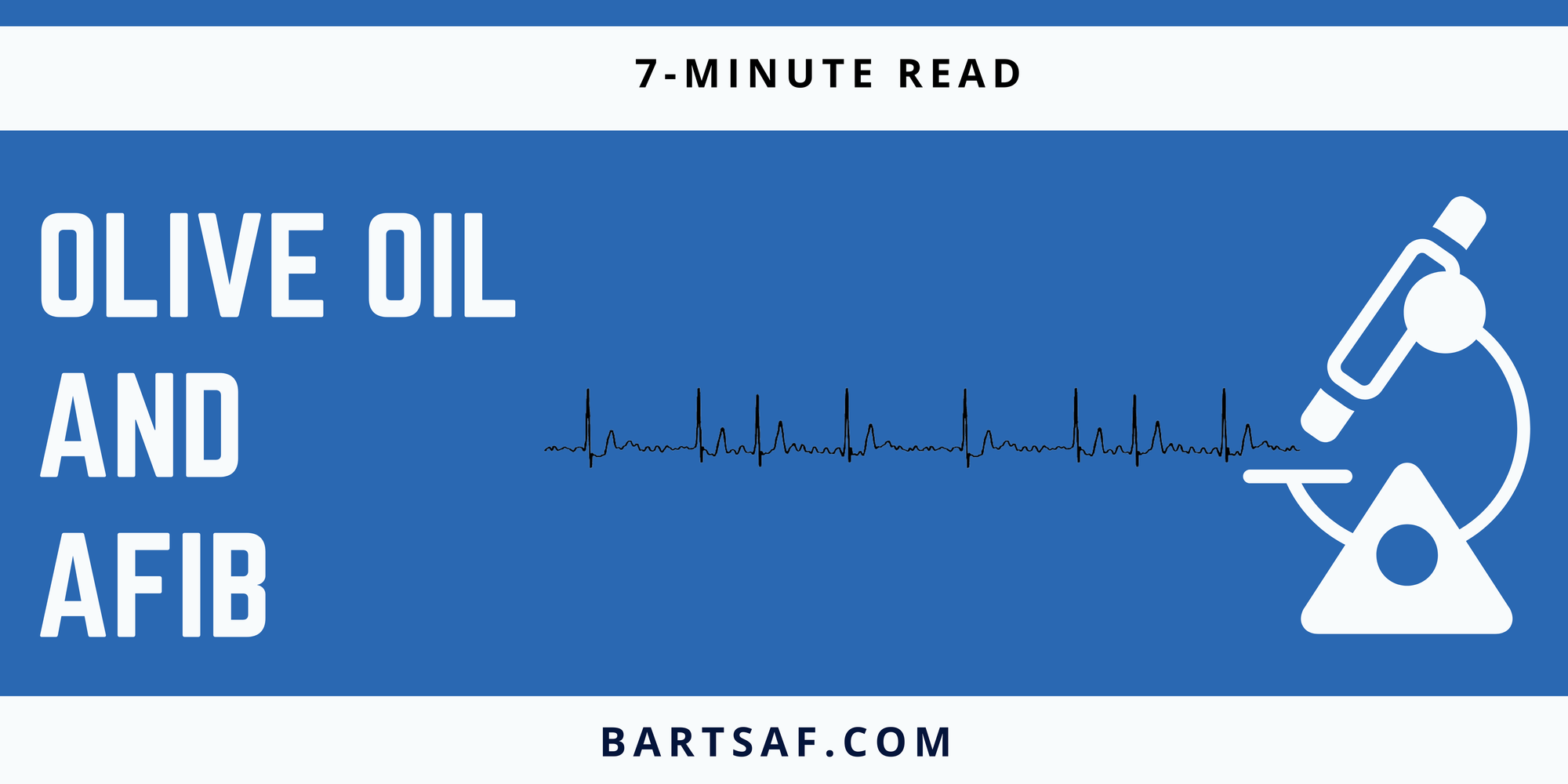
The PREDIMAR study results and their impact on AFIB patients
It can sometimes feel superficial as a doctor advocating for lifestyle changes in the cardiology clinic. Often done at the end of the consultation as icing dressing on the cake salad.
One reason may be that a good diet and exercise are undoubtedly good for overall health and longevity. However, do we have robust and convincing evidence to support their recommendation for the specific patient in front of us?
I remember being taught at medical school about the link between caffeine and atrial fibrillation. This translated into a generation of doctors advising individuals with AF to cut out caffeine for the risk of triggering an AF event. Fortunately, the AF research community has been relatively proactive in undertaking the studies and analysing the data to make some evidence-based recommendations.
The risks of alcohol have been affirmed- at any dose, whilst conversely, caffeine in moderation has been indicated. The data behind weight loss and AF risk reduction in every setting is strong and growing.
But recommending a ‘good diet’ to patients has always seemed too nebulous. It can be culturally personal, but I lack robust data to be in a position to recommend a change.
This sets the stage, and my enthusiasm, for the PREDIMAR (PREvention of recurrent arrhythmias with Mediterranean diet) study, which was presented at the Heart Rhythm Society conference last weekend.
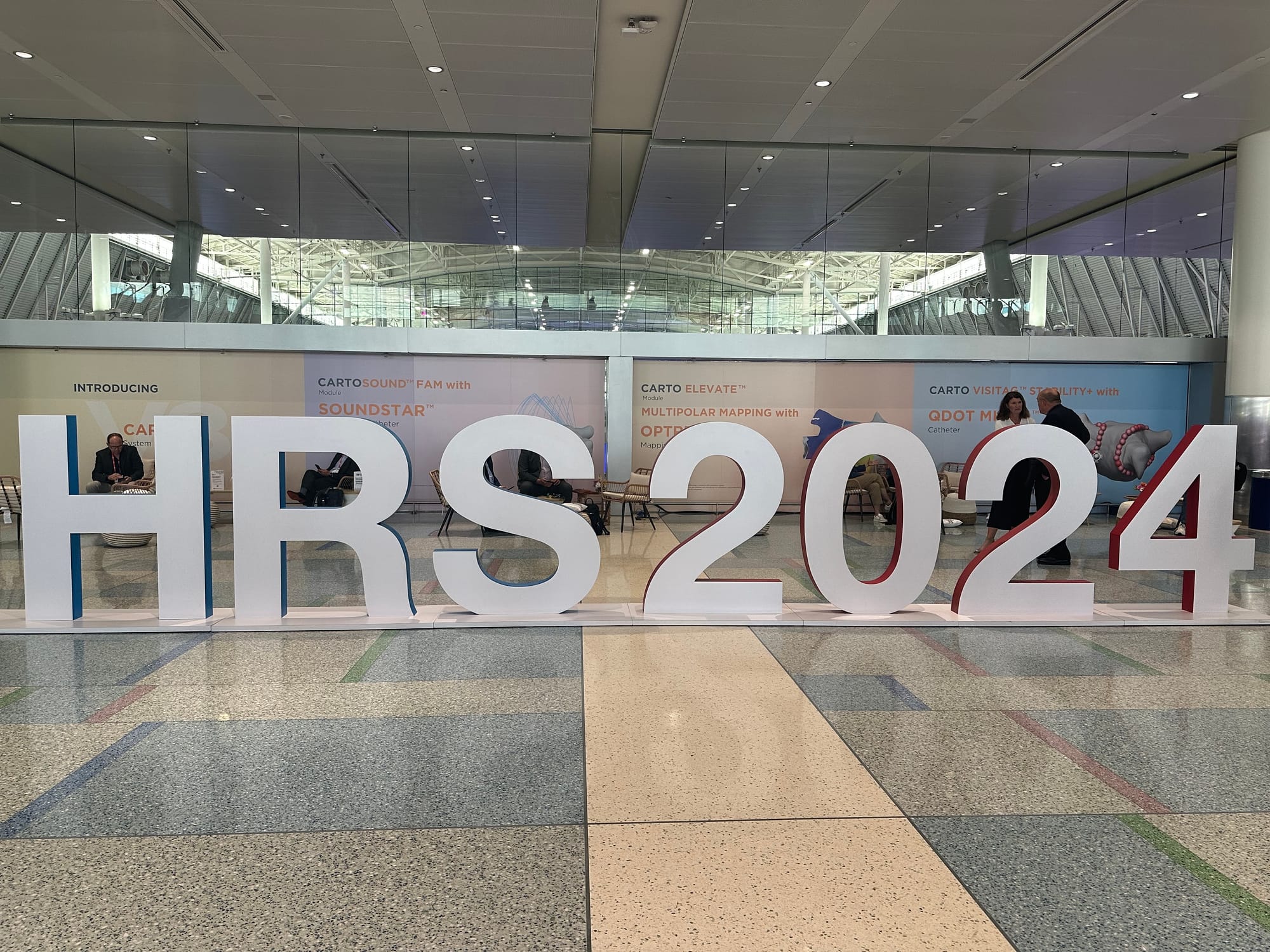
The fundamental research question of PREDIMAR was, “Does a Mediterranean Diet with Extra Virgin Olive Oil reduce the incidence of AF recurrence after a Catheter Ablation?”
The PREDIMED study (2014)
There was the scientific rationale to support the study. In 2014 the PREDIMED study was published. It was designed to compare the effects of three dietary regimens on the risk of stroke, heart attacks and death. 7447 participants in Spain who were considered high risk of heart disease were randomised and supported to adhere to a diet of either “Mediterranean diet + Extra Virgin Olive Oil” or “Mediterranean diet + Nuts” or “reduced fat” group. After five years, the rate of events was 30% lower in the Mediterranean diet groups than the reduced fat group.

But there was also an unexpected finding- the rate of AF onset in the “Mediterranean diet + Olive Oil” group had less AF later in the follow-up period.

The PREDIMAR study (2024)
This finding drove the study design of PREDIMAR, which is now being presented 10 years later. This was a smaller study of 720 participants, also conducted in Spain. Individuals were invited to participate after their AF Catheter Ablation procedure and randomised to either the “Mediterranean Diet + Extra Virgin Olive Oil” or a comparator group of a “healthy diet”. The investigators were thorough- they provided dietician consultations and recipes to both groups as required. The “Mediterranean Diet + Extra Virgin Olive Oil” group were given 12 litres of Olive Oil at each study visit to try and promote adherence.
Participants used the Kardia ECG monitor or telephone checks to monitor their rhythm regularly.
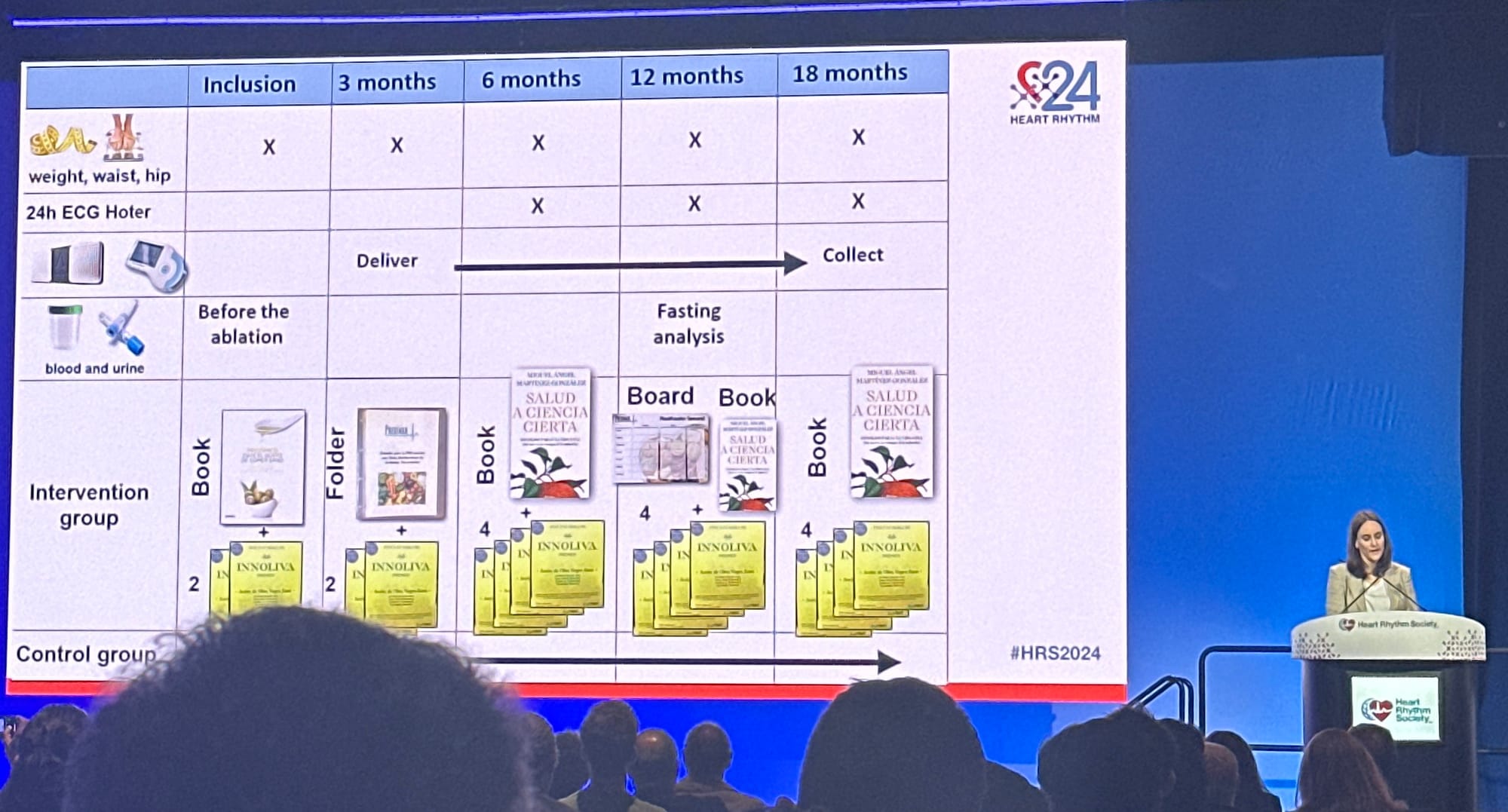
A Neutral result
At the end of the study, they calculated the rates of AF recurrence and found no significant difference between patients in the two groups. If you look at the chart below, 35% of the Mediterranean Diet group had a recurrence episode versus 39% of the ‘Healthy diet’ group. After statistical testing to account for the effects of random chance, it came out as not a significant difference.
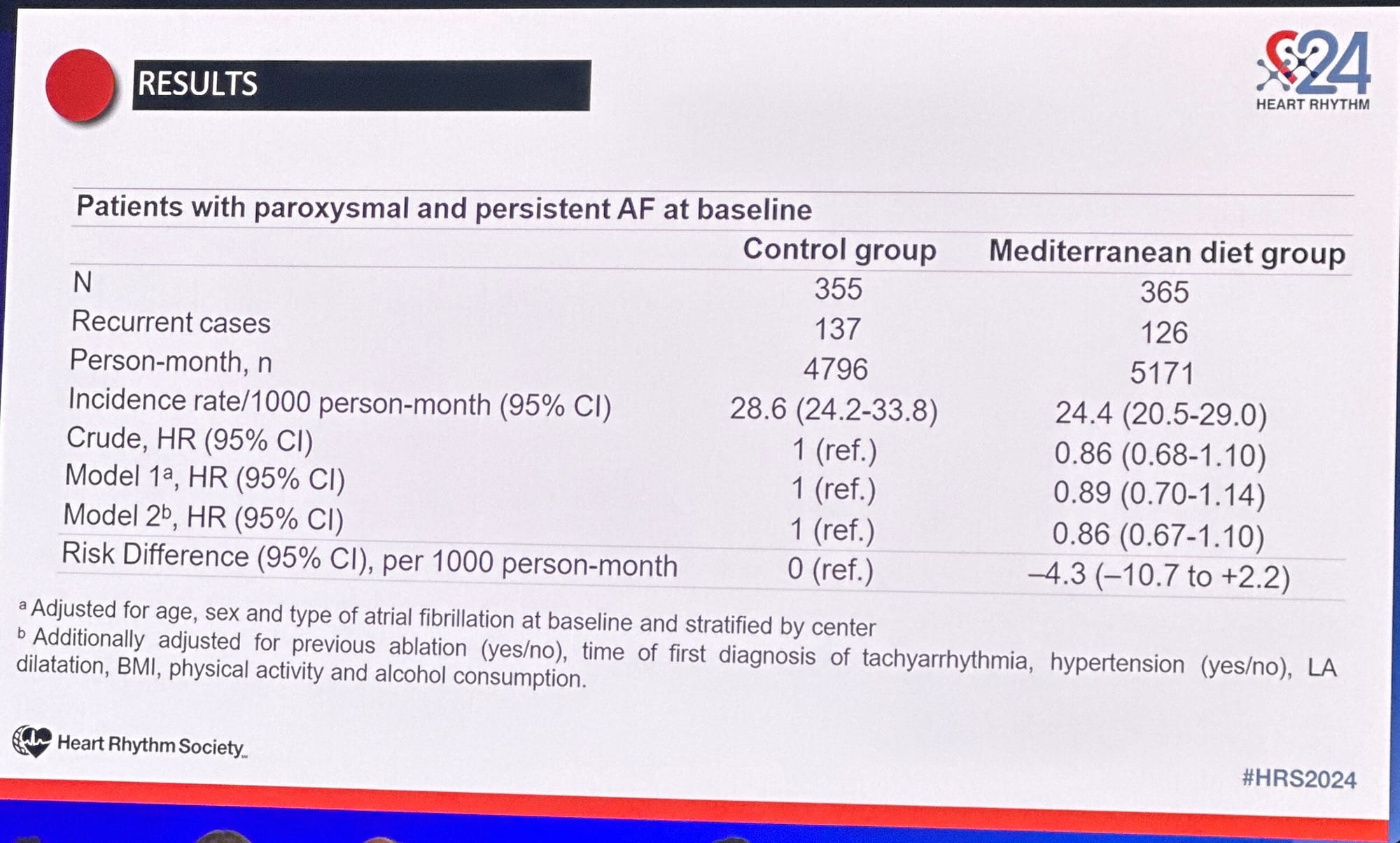
So, is there no benefit?
However, based on the research question set out by the investigators, they were not able to demonstrate benefit from their regimen, and there are several possible reasons for that-
- Both groups had a healthy diet to begin with. Many participants in the ‘Healthy diet’ group had a Mediterranean diet to begin with anyway. So, although the diet became ‘more Mediterranean’ in the study group, and they were given olive oil by the gallon to take home, it is unclear what the true difference in diet between the two groups was.
- There was no difference in weight. We know obesity is a risk factor for AF, and there was no significant difference in weight between the two groups, nor any meaningful chance. It is possible that the beneficial effects of the diet are counteracted by the fats and additional supplementation of the Mediterranean diet + Extra Virgin Olive Oil group.
- The Mediterranean diet also incorporates wine consumption in food and as a drink alongside meals. Although the overall health effects of Mediterranean wine can be argued, the effect of AFib risk is clear and may have neutralised any benefit.
Paroxysmal AF may do better
You always have to approach a sub-analysis with caution, especially when it wasn’t pre-specified before the trial started because this may just be a random finding, but the authors felt it was worth highlighting. If you repeat the analysis but only look at patients with paroxysmal AF (431 patients), the difference in AF rates is greater- 25% in the Mediterranean diet group versus 35% in the healthy diet group. I think there will be more speculation on this to come, but it’s worth simply acknowledging this result and considering that future studies should be done to investigate whether this is a meaningful result properly.
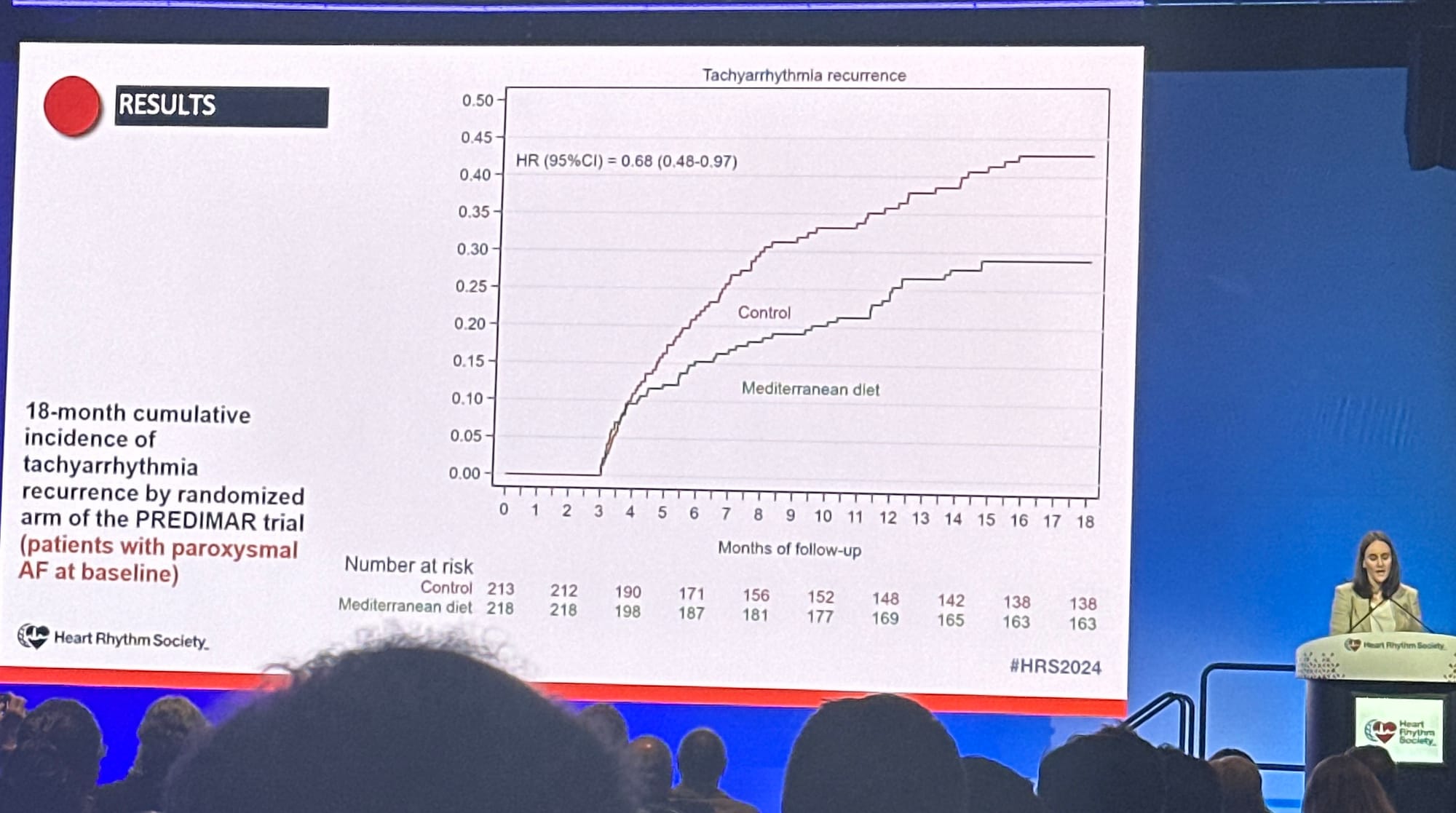
Summary
PREDIMAR was a great study. It proves that dietary interventions can be evaluated in the AF space so we can go get some specific answers. The results do not support us routinely recommending to all our AF patients to change to a Mediterranean + Olive Oil diet. However, we have good evidence for exercise, alcohol and weight loss, and the evidence for Stroke/Heart Attack/Death risk reduction from the original PREDIMED study is convincing enough to consider it from that perspective alone.
